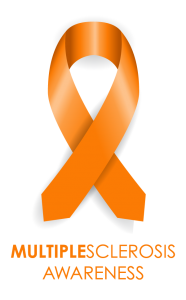
Treating multiple sclerosis symptoms is possible with these tips from the providers of home rehabilitation services in Mount Pleasant, IA and the surrounding area.
For those diagnosed with the disease, treating multiple sclerosis symptoms is a daily challenge. While there is no cure for multiple sclerosis (MS), hundreds of thousands of people in our country are living with it – around 400,000 individuals. Of that number, 86 percent of MS patients identify fatigue as the top symptom they’re experiencing when they discuss treating multiple sclerosis symptoms. The cause of MS is not known; it is not contagious or known to be hereditary, but factors that may come into play include the following:
- Gender – Women are affected more than two times as often as males
- Age – The majority of individuals receive a diagnosis between the ages of 20 and 50
- Geography – The majority of individuals with MS are living in temperate environments
- Ethnic background – Caucasians are at a heightened risk
It is thought that multiple sclerosis symptoms occur when an immune system attack affects myelin, the protective insulation around nerve fibers of the central nervous system. For those with MS, myelin is destroyed and replaced by scars of toughened sclerotic tissue. Some underlying nerve fibers are forever severed, and the damage manifests in a number of places in the central nervous system — giving the disease its name.
While we’re awaiting a cure, there are a wide variety of options for treating multiple sclerosis symptoms currently accessible to help. Medicines can change the disease course, treat relapses, and control symptoms, enhancing quality of life and comfort for individuals managing multiple sclerosis symptoms. These medications might include:
Disease Course Modification
- Injectable medications such as interferon beta 1a and 1b, glatiramer acetate, and peginterferon beta 1a
- Oral medications such as teriflunomide, fingolimod, cladribine, siponimod, dimethyl fumarate, and diroximel fumarate
- Infused medications such as alemtuzumab, mitoxantrone, ocrelizumab, and natalizumab
Relapse Management
- IV or oral corticosteroids such as methylprednisolone, prednisone, and ACTH
Symptom Management
- A wide range of medications can be prescribed to ease symptoms such as:
- Bladder dysfunction
- Bladder infection
- Bowel dysfunction
- Depression
- Dizziness
- Emotional difficulties
- Fatigue
- Itching
- Pain
- Sexual difficulties
- Tremors
- Walking difficulties
- And more
Additionally, numerous non-medicinal therapeutic and technological advances can be helpful, as can professional senior in-home care services, which make life more comfortable, easier, and safer for those with MS.
Advanced Home Health Care, the top providers of home care assistance in Burlington, Iowa and surrounding communities, is always on hand to provide a free in-home assessment and creation of a customized plan of care to address any difficulties being experienced by an individual with multiple sclerosis. Whether the need is for several hours of help with housework and companionship, 24/7 live-in care to enhance safety and to prevent falls, or anything in between, our professional, compassionate caregivers are fully trained and experienced in meeting a full range of MS care needs. Contact us online or call us any time toll-free at 800.791.7785, at our Burlington office at 319.753.6270 or our Keokuk office at 319.524.2144 to learn more.

